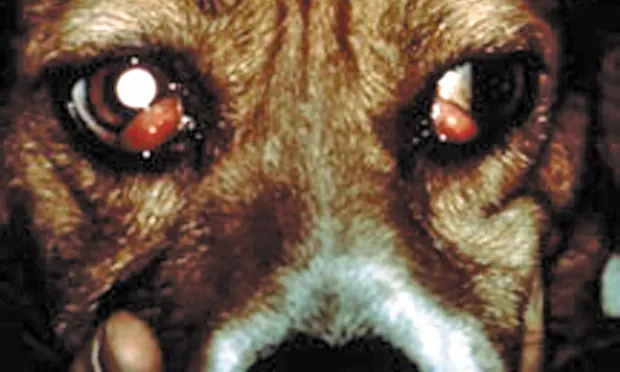Research Note: Heritability of Cherry Eye in Dogs

Prolapsed nictitating membrane gland (PNMG), or cherry eye, is common in young dogs. The exact cause is unknown, but PNMG may arise from weakness in the connective tissue attachments of the nictitating membrane and/or exposure to environmental allergens causing hyperplasia of the lymph gland. Increased prevalence in certain breeds suggests a possible hereditary link. This study investigated the inheritance of PNMG in 2 related lines of purpose-bred crossbreed dogs with an unusually high prevalence of PNMG. In the first line of dogs (GS), 8/201 (4%) were diagnosed with PNMG; the second line (M) had 5/50 dogs (10%) diagnosed with PNMG. All research dogs possessed a dolichocephalic phenotype. The high prevalence of PNMG suggested genetic factors were involved. Simple Mendelian inheritance was quickly ruled out on detailed pedigree analysis. Future studies using selective breeding of affected dogs or gene expression studies relating to weakened connective tissue bands in the nictitating membrane may be warranted.
Source
Investigating the inheritance of prolapsed nictitating membrane glands in a large canine pedigree. Edelmann ML, Miyadera K, Iwabe S, Komáromy AM. VET OPHTHALMOL 16:416-422, 2013